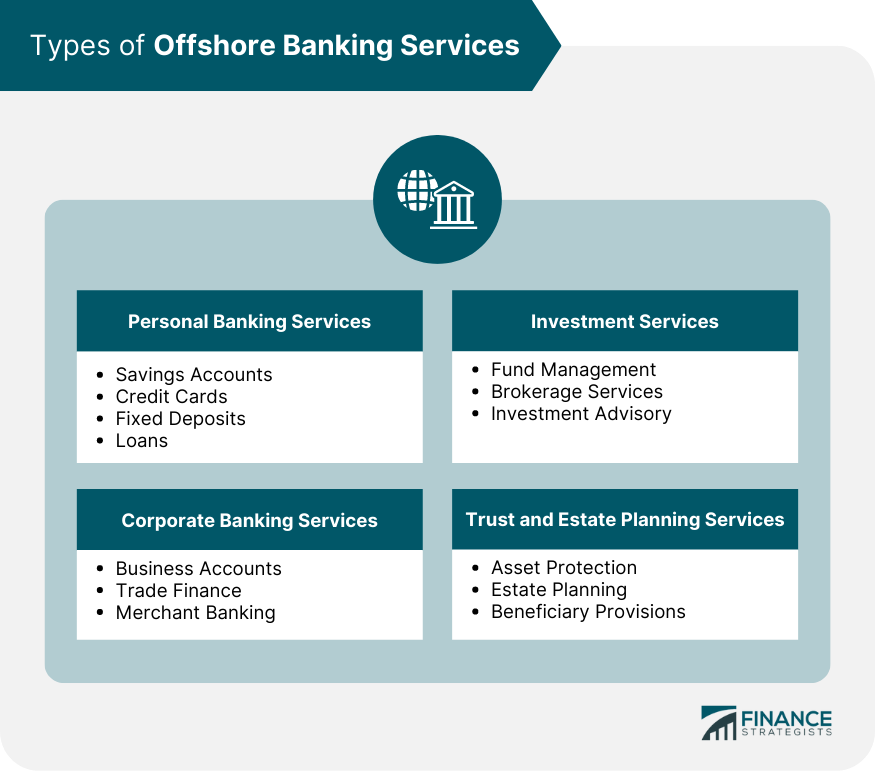10 Important Benefits of Offshore Company Formations for Legal Shielding and Privacy
Debunking Offshore Company Formations: How They Operate and What to Expect
Offshore company formations can appear facility and enigmatic. Offshore Company Formations. These entities, usually established for tax obligation benefits and privacy, run under unique legal frameworks. Entrepreneurs may find themselves steering through a maze of regulations and conformity requirements. Comprehending the complexities is necessary for success. What are the genuine advantages? What are the potential challenges? A closer exam exposes the subtleties that can impact decision-making considerably
Understanding Offshore Companies: Interpretations and Types
Offshore business are entities developed in a territory outside of a person's or business's key country of house, usually for objectives connected to tax obligation optimization, property defense, or regulatory benefits. These companies can take various types, including limited obligation business (LLCs), worldwide service firms (IBCs), and offshore trust funds. Each type offers particular features and interest various needs.
Restricted obligation firms offer proprietors with security from personal liability, while global company firms are popular for their versatility and minimal reporting demands. Offshore trust funds, on the other hand, are utilized largely for estate preparation and possession protection.
The choice of territory significantly influences the firm's operations, as some places offer extra positive lawful frameworks and privacy securities. Offshore Company Formations. Recognizing the distinctions between these types is crucial for companies and people considering offshore structures, as each choice carries different effects for governance and compliance
The Advantages of Establishing an Offshore Firm
Developing an offshore firm can supply various benefits, especially for those seeking to improve their economic techniques and secure their assets. One considerable advantage is tax optimization; lots of territories use desirable tax obligation rates or exceptions, enabling businesses to maintain more revenues. In addition, overseas business can offer a layer of privacy, shielding the identities of proprietors and investors from public analysis.
An additional benefit is possession defense. By placing properties in an offshore entity, people can guard their riches from prospective legal cases or political instability in their home nations. This structure likewise facilitates global organization operations, allowing less complicated accessibility to diverse customers and international markets.
In addition, the facility of an offshore firm can enhance reliability and reputation, appealing to clients that value international organization methods. On the whole, these advantages make overseas company formations an eye-catching choice for individuals and services going for economic development and security.
Trick Factors To Consider Prior To Creating an Offshore Entity
Prior to creating an offshore entity, numerous vital variables have to be evaluated. Legal compliance requirements, tax implications and advantages, along with jurisdiction option, play a significant function in the decision-making procedure. Understanding these considerations can assist people and services browse the intricacies of overseas company formations successfully.

Lawful Conformity Demands
When taking into consideration the development of an offshore entity, understanding lawful compliance requirements is vital to guarantee adherence to both neighborhood and global legislations. Prospective entrepreneur have to acquaint themselves with regulations governing business registration, reporting responsibilities, and operational requirements in the picked jurisdiction. This consists of verifying the legal needs for shareholders and supervisors, along with making certain compliance with anti-money laundering (AML) and know-your-customer (KYC) guidelines. In addition, companies must remain mindful of any type of licensing needs particular to their sector. Involving regional lawful and economic specialists can give valuable insights, guaranteeing that all needed documentation is prepared and sent properly. Ultimately, extensive understanding of lawful conformity helps reduce threats and promotes a sustainable offshore procedure.
Tax Obligation Implications and Advantages
Countless entrepreneur consider the tax implications and advantages of developing an overseas entity as a critical factor in their decision-making process. Offshore firms can supply significant tax obligation advantages, such as reduced company tax obligation prices, exemption from certain local tax obligations, and the ability to postpone tax obligations on international income. These advantages can result in boosted profitability and cash money circulation, making overseas structures appealing for international business operations. Additionally, the possibility for tax treaties may better lessen tax obligation liabilities. Nonetheless, it is necessary for service proprietors to recognize the complexities involved, consisting of compliance with both local and global tax laws. Involving with tax specialists is a good idea to browse these details effectively and ensure optimal tax obligation preparation approaches.
Jurisdiction Option Factors
What elements should one take into consideration when selecting a jurisdiction for offshore firm formation? Key factors to consider consist of tax performance, governing atmosphere, and political security. Territories with beneficial tax obligation programs can considerably impact profitability. The regulative landscape ought to use versatility and simplicity of conformity, permitting effective business procedures. Political security is vital, as it guarantees the safety of assets and continuity of procedures. Additionally, the reputation of the territory can impact client trust and business partnerships. Accessibility to banking solutions and the availability of professional support solutions are also vital. Ultimately, understanding local laws pertaining to privacy, ownership, and reporting requirements is necessary to establish that the overseas entity aligns with the organization proprietor's objectives and lawful obligations.
The Refine of Establishing Up an Offshore Business
Setting up an overseas company entails a series of calculated actions that require cautious planning and conformity with international policies. Originally, a private have to select an appropriate jurisdiction that straightens with their service goals and uses favorable tax obligation advantages. Adhering to territory choice, the next step is to choose an unique firm name and prepare the essential paperwork, including write-ups of unification and shareholder contracts.
When the documents prepares, it needs to be submitted to the pertinent authorities together with the required fees. After authorization, the company will certainly receive a certification of consolidation, officially developing its lawful existence. The private should after that open up a corporate checking account to promote economic transactions.
Finally, maintaining an overseas firm entails adhering to continuous conformity needs, such as yearly reporting and tax commitments, which vary by jurisdiction. Comprehending each action is important for a successful overseas business formation.

Regulative and legal Framework for Offshore Firms
While establishing an offshore company can offer significant advantages, it is necessary to steer with the complicated legal and governing structure that governs such entities. Each territory has its very own collection of laws that determine whatever from business development to taxation and compliance requirements. These regulations are developed to avoid prohibited tasks, such as money laundering and tax evasion, and commonly call for comprehensive paperwork and openness.
Trick components of this structure consist of the necessity of appointing regional supervisors, maintaining a registered office, and sticking to annual coverage responsibilities. Additionally, lots of territories impose certain licensing needs for sure service tasks. Recognizing these legal stipulations is crucial for ensuring conformity and mitigating threats related to penalties or lawful disagreements. Involving with lawful experts that specialize in offshore firms can aid in steering with this detailed landscape, inevitably facilitating a successful and compliant offshore company procedure.
Typical Misunderstandings Concerning Offshore Firms
Lots of individuals hold misunderstandings about overseas business, often equating them with tax obligation evasion and unlawful tasks. Nevertheless, it is necessary to identify that these entities can operate lawfully within a structure developed for legitimate organization methods. Making clear the legal standing of offshore firms can aid dispel these misconceptions and promote a more accurate understanding of their objective.
Tax Obligation Evasion Misconceptions
In spite of the expanding popularity of offshore firms, misunderstandings regarding their usage for tax obligation evasion continue. Lots of individuals erroneously believe that establishing an overseas entity is exclusively a method to prevent taxes. Offshore business are frequently made use of for legitimate objectives, such as possession protection, global company development, and financial investment diversity. The perception that all overseas tasks equate to illegal tax obligation evasion neglects the intricacies of global tax obligation policies and conformity demands. In addition, the huge majority of offshore jurisdictions have implemented actions to fight tax obligation evasion, promoting openness and info exchange. This mischaracterization can deter reputable companies and capitalists from exploring the possible benefits of offshore company formations while bolstering a negative stigma bordering these entities.
Lawful Standing Clarified
The lawful standing More Bonuses of overseas firms is website here usually misconstrued, resulting in a range of false impressions. Many believe these entities run in a lawful gray area, presuming they are unethical or inherently illegal. In truth, overseas companies are legitimate companies created under the regulations of details jurisdictions, developed for different factors, consisting of asset security and market development. An additional usual misconception is that overseas firms avert taxes entirely; nonetheless, they are subject to the regulations and tax obligations of their home countries. In addition, some individuals think that overseas firms can be quickly exploited for money laundering or prohibited tasks. While abuse can take place, most territories apply rigorous conformity and openness legislations to reduce such threats, ensuring that overseas firms operate within legal frameworks.

Managing and Operating Your Offshore Business Effectively
Efficiently taking care of and running an offshore business calls for a strategic method that stabilizes conformity with neighborhood regulations and the pursuit of service objectives. Successful overseas monitoring involves understanding the jurisdiction's tax regulations, reporting needs, and functional laws. Using neighborhood experts, such as accountants and legal advisors, can provide invaluable understandings right into going across these intricacies.
Furthermore, establishing clear interaction networks and functional methods is vital for maintaining efficiency. Utilizing innovation for job monitoring and partnership can improve productivity, while regular efficiency examines assurance positioning with tactical goals.
Keeping durable financial documents is crucial, as openness fosters trust with stakeholders and complies with global requirements. Being versatile to changes in regulation or market problems allows overseas companies to pivot successfully, guaranteeing lasting sustainability and growth. By sticking to these concepts, entrepreneur can take full advantage of the advantages of their offshore ventures while mitigating dangers.
Frequently Asked Concerns
How Much Does It Expense to Keep an Offshore Business Each Year?
The expense to keep an overseas company every year differs significantly, typically ranging from $1,000 to $5,000, depending upon jurisdiction, services called for, and compliance responsibilities. It is crucial to take into account extra fees for particular demands.
Can I Open Up a Bank Account for My Offshore Business From Another Location?
Opening a bank account for an offshore business from another location is usually possible. However, requirements may vary by jurisdiction, usually requiring see page paperwork and confirmation procedures, which can complicate the remote application experience for individuals.
Exist Details Nations Known for Easier Offshore Company Formations?
Specific countries, such as Belize, Seychelles, and the British Virgin Islands, are renowned for their desirable guidelines and structured processes concerning offshore firm developments, drawing in entrepreneurs seeking performance and privacy in service procedures.
What Kinds of Companies Are Best Matched for Offshore Business?
Certain organizations, such as shopping, consultancy, and investment firms, usually profit from offshore firms due to tax obligation advantages, personal privacy, and regulatory adaptability - Offshore Company Formations. These entities usually thrive in territories that advertise positive business atmospheres
How Can I Make Sure Compliance With Regional Laws When Running Offshore?
To guarantee compliance with regional laws when operating offshore, it is important to engage lawful experts, carry out detailed research on territory laws, and preserve clear financial documents, thus lessening threats connected with non-compliance.
